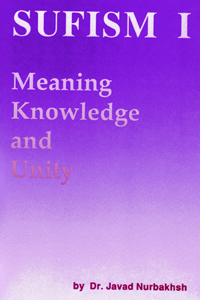



This volume contains essays on the three principal concepts in the spiritual method of Sufism. The first essay introduces 'the science of Sufism', with definitions and explanations of Sufism selected from the writings of the classical Sufi Masters, as well as 53 explanations of the meaning of the term sufi. The second essay explores the Sufi concept of knowledge (ma'refat), and explains the difference between knowledge imparted through revelation and that accessible to reason. The final essay examines the various esoteric meanings and hierarchical levels of Divine Unity (tawhid), the goal of the Sufi Path.
The literal translation of the Arabic word ma'refat is "knowledge." Although as a technical term in Sufism it bears the same significance, it also implies a knowledge that is preceded by mediation and that allows of no doubt. According to some Sufis, ma'refat is comprehension or knowledge of "the thing itself," of essential knowledge. In this essay, however, the word is used to mean true knowledge of God.
A drop of spray cannot engulf the sea nor can the part comprehend the whole; thus, without doubt, man cannot know God in a way that befits Him. The best proof of this is God's own saying, "They measure not God with His true measure" (Koran, VI: 92; XXXIX: 67); and, as the Prophet has said, "We have not known Thee according to Thy true measure."
Of course, with Divine help and grace, one may know God's attributes, at least to the extent of one's capacity. However, no one can know God's Essence, His very Self, through his own limited selfhood. As 'Ali has said, "I know God by God; I know 'other-than-God by God's light."
No one makes His way to God
     under his own feeble power,

Whoever walks to His lane
     walks with His feet.-Maghrebi